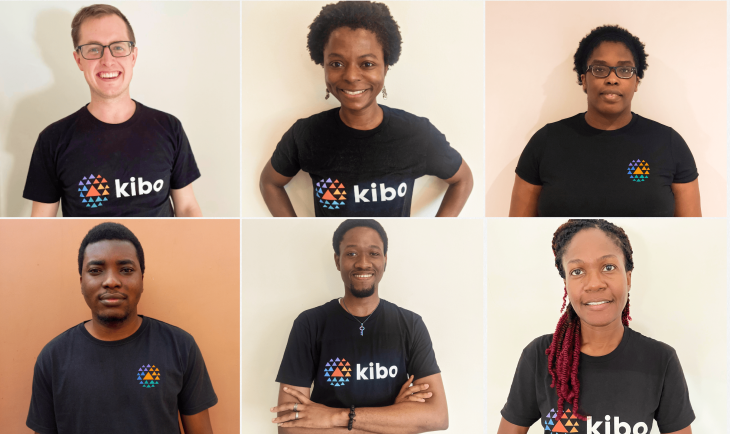Kibo, an online school offering several STEM degree programs aimed at African students has received $2 million in seed funding. The company is led by Neo, a VC firm, founded by the cofounder of Code.org.
This brings the total capital raised by the startup to $2.4 million after last year’s pre-seed round. Participating in the round include Future Africa, Pledges, Brooklyn Bridge Ventures, Transcend Network, and several angel investors.
Launching Kibo From Curiosity To Help African Students Access Quality Education
Ope Bukola’s family relocated from Nigeria to the U.S. when she was 10, where she advanced her studies to pursue a degree in economics. She was exposed to the best education available at New York University and questioned how her Nigerian friends and other bright African students could access the same.
After graduating, she set out on a mission to make education more accessible. Keen to take advantage of opportunities in the American edtech sector, she worked at Palo Alto Networks, digitizing textbooks before working as the product lead at Google Classroom.
Read Also : EDTECH STARTUP MANARA RAISES $3M TO GROW TECH TALENT POOL IN MENA
After years of planning and market research, Bukola was joined by Keno Omu and Rob Cobb to launch the Kibo School last year. By the time she left Google in 2019, Bukola knew precisely what she needed to do to make quality education available and affordable. While Cobb, a master’s teacher at Flatiron School, previously worked as a curriculum engineer at Make School, Omu is the former dean of Africa Leadership University. The trio is bringing their formidable industry experience and expertise to create a better alternative to traditional education.
“There are so many young people getting into the technology workforce, and I really think the continent could be the place for young technologists if only our education system were up to the task. Our mission at Kibo is to provide a better alternative to traditional education,” said Ope Bukola, co-founder and CEO of Kibo.
“The primary goal for the seed round is to get the degree program off the ground. We have been doing these short classes, and we will keep doing them and going through the process of applying for accreditation. But our primary focus now is bringing in students for our degree programs,” she said, adding that through the short courses launched last year, the school has trained 400 students in 13 countries in Africa.
The startup participated in and won the GSV Cup in April this year, one of the largest edtech pitch competitions globally, which validated the focus on STEM.

Overwhelmed with joy, Bukola noted, “The future of global talent is African. We’re the youngest and the fastest-growing continent. So, if you want to solve the world’s future problems, literally the young people are going to be in Africa. This is not just a charitable thing; it’s just a practical thing because Africa is where the opportunity for growth is.”
Enrolling 100 Students In The First Cohort
A few weeks ago, the school opened the application window for its full-time computer science degree, which is its first program. It hopes to enroll 100 students in the first cohort of the three-year program, which will cost them $6,000 in total.
Woolf, a UK-based collegiate university, has accredited the program. Students enrolled at Kibo will receive European Credit Transfer and Accumulation System (ECTS) credits as Woolf members, which are recognized across the globe.
Read Also : TLcom Capital To Invest In Female-Led Startups, Appoints Eloho Omame
To facilitate sporadic meetups, Kibo has made the program available to students in six cities throughout Kenya, Nigeria, and Ghana. To be eligible, applicants must reside at least 100 kilometers from these cities. Beginning the following year, the school plans to introduce more programs and welcome new students every quarter.
“It’s an online degree, but we have target cities because it’s still essential to help students build community. So, in every city where we’re enrolling students, there’s going to be an adviser on the ground who will organize meetups every month,” said Bukola.
Building Community To Tackle Online Learning Drawbacks
Bukola pointed out that establishing student communities in different countries will guarantee student retention at the school and help avoid the common drawbacks of online learning.
While most online courses are self-paced, learning at Kibo is moderated, and group projects are required. Before graduating, they must undergo internships and be connected with professional mentors. Additionally, the school has agreements in place with several organizations to provide its students with internships and part-time work.
“The key for us is understanding that human connection is at the heart of learning. So, you can’t remove people from the learning experience. And maybe the cheapest thing to do would be to make the students watch videos and learn completely on their own, but that doesn’t work. That is why we are really focused on collaborative learning,” said Bukola.
“We’re focused on making it a very professional degree. It’s not just like book learning; students will build projects and then one quarter every year they will have to do an internship or an industry experience.”
The majority of the school’s administrative tasks, including pairing students for revision, will be automated by a more intelligent system now being developed, said Bukola.




